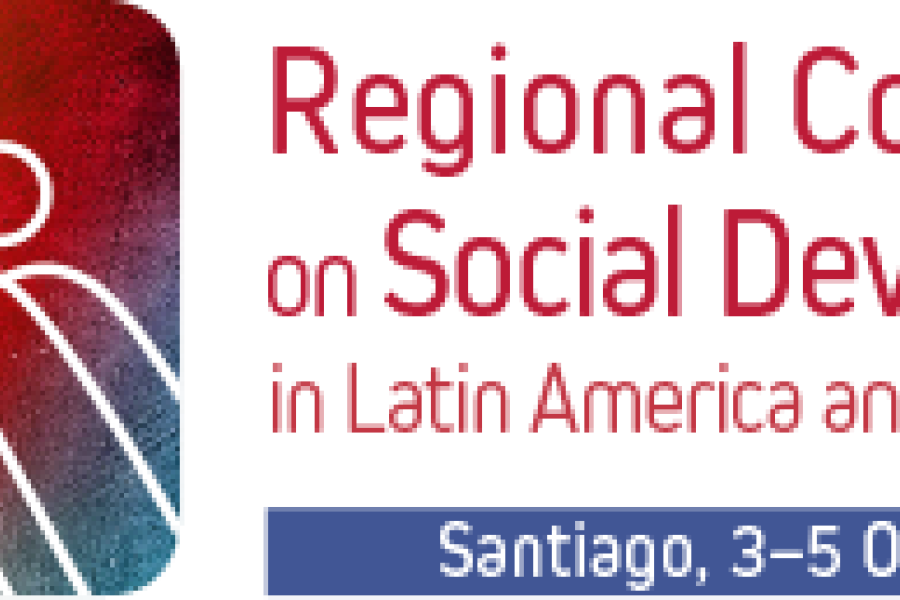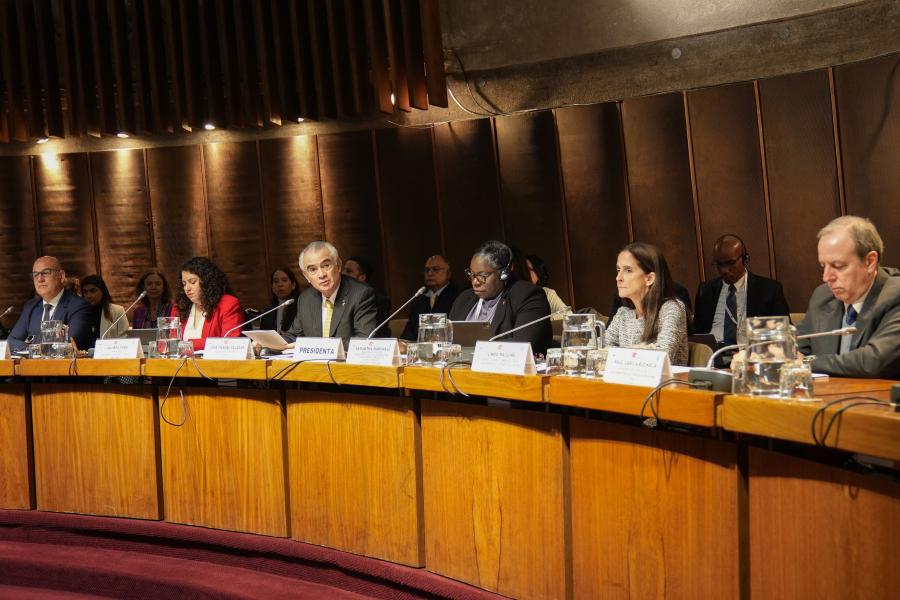Social institutionality
Social institutionality encompasses the set of rules and organizational structure on (and with) which social policy is managed, from the diagnosis and prioritization of objectives to the implementation and evaluation of its results. Based on its four dimensions (legal-normative, organizational, technical-operational and financing), and considering the national, subnational, regional and international spheres, social institutionality generates the basic conditions for the success of public policy in general, and of social policies in particular. It therefore stands out as a central element for advancing the social dimension of sustainable development and the achievement of the goals of the 2030 Agenda and is also a priority axis of the Regional Agenda for Inclusive Social Development. Based on analytical experience, work with the countries and continuous systematization of information, the social institutional framework forms a strategic axis of work in the Social Development Division with a view to advancing towards quality public policies, a task that encompasses both a look at social policy as a whole and at selected thematic areas and population segments.
Activities

Fifth session of the Regional Conference on Social Development in Latin America and the Caribbean
The Fifth session of the Regional Conference on Social Development in Latin America and the Caribbean of ECLAC and the XV Ministerial Forum for Development in Latin America and the Caribbean of UNDP, will be held in person from 3 to 5 October 2023 at the headquarters of ECLAC in Santiago. The civil society will meet on 2 October, prior to the start of the official activities. Official activities of the meeting will include five panel discussions to address relevant issues in the field of social institutions identified as priorities in the document "Institutional frameworks for social policy in Latin America and the Caribbean: a central element in advancing towards inclusive social development" and in the Regional Agenda for Inclusive Social Development.

Evento paralelo "Los registros sociales frente a la crisis en cascada y los desafíos de la protección social digital en América Latina"
Este evento paralelo busca generar un espacio de diálogo e intercambio en el cual se revisarán las experiencias de países que han avanzado en el establecimiento de registros sociales, encontrándose en diversas fases de su desarrollo, de modo de dar cuenta de las acciones que se requieren para su fortalecimiento, así como de las estrategias de financiamiento y de coordinación interinstitucional necesarias para su desarrollo.

Fourth session of the Regional Conference on Social Development in Latin America and the Caribbean
The fourth session of the Regional Conference on Social Development in Latin America and the Caribbean is being organized by the Economic Commission for Latin America and the Caribbean (ECLAC), the Government of Antigua and Barbuda and the United Nations Development Programme (UNDP). The meeting, which will be held virtually, will be attended by social development authorities from the region. The document to be presented on this occasion analyses the impact of disasters and inequality as well as options for the implementation of some of the lines of action of the Regional Agenda for Inclusive Social Development related to the role of social protection in disaster response , with a view to bringing about a transformative recovery with equality and sustainability.
News

CEPAL, BID y Banco Mundial lanzan Plataforma de la Red de Registros Sociales de América Latina y el Caribe
La nueva plataforma digital de la RED ALC busca facilitar el intercambio de experiencias, herramientas e innovaciones entre las y los funcionarios tomadores de decisiones de los países de la región, promoviendo la colaboración regional y el aprendizaje colectivo en torno a los registros sociales.

Lanzamiento del Observatorio de Desarrollo Social Alianza del Pacífico: institucionalidad social
Acceda a datos oficiales de los países de la región sobre institucionalidad social.

ECLAC Will Present its Social Panorama of Latin America and the Caribbean 2023 Report
José Manuel Salazar-Xirinachs, the United Nations regional organization’s Executive Secretary, will give a press conference on Thursday, November 23 from Santiago, Chile.

Strengthening the Social Institutional Framework and Governance is Fundamental for Making Progress on Eradicating Poverty and Reducing Inequality in the Region
The Fifth Session of the Regional Conference on Social Development in Latin America and the Caribbean – organized by ECLAC, the Government of Chile and the UNDP – was inaugurated today in Santiago, Chile.
Video
Contact
Rodrigo Martínez
- rodrigo.martinez@cepal.org
- (56-2) 2210 2309




